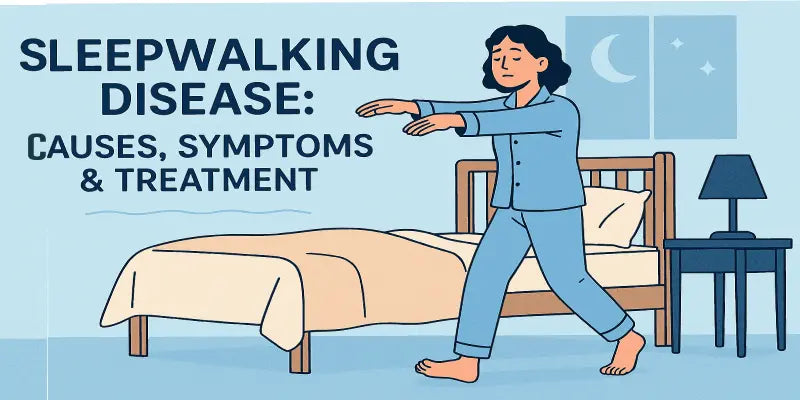
Why Should We Choose You to be a Sleep Intern?
When you think about sleep, what comes to mind? For some, it’s probably a peaceful night of uninterrupted sleep. For others, maybe it’s the all-night cram sessions they used to do in high school. But for most people, getting enough good sleep is essential for overall well-being.
In this blog post, we will explore why sleep is so important and how you can make sure you get the most out of your slumbering hours. From bedtime rituals to sleeping tips and more, read on to learn everything you need to know about getting a good night’s sleep.
What is Sleep Intern?
A sleep intern is someone who is passionate about sleep and wants to learn more about it. They are interested in learning how to improve the quality of sleep for everyone, not just themselves. Sleep interns can be a great resource for doctors, nurses, therapists, and anyone else who works with patients or clients who have sleep problems.
Sleep interns can help doctors and others improve the quality of people’s sleep by helping them understand what factors are important for good sleep and how to improve them. They can also teach patients or clients about different ways to relax before bedtime so that they fall asleep easier and stay asleep longer.
If you are interested in being a sleep intern, there are a few things you should know. First, you need to have a strong interest in sleep and a willingness to learn more about it. Second, you need to be able to work independently and take direction well. Third, you should be able to communicate effectively both verbally and in writing. Finally, you should have excellent organizational skills and be able to manage multiple tasks simultaneously without getting overwhelmed.
What is Sleep Internship?
Sleep internships provide a unique opportunity for students to gain valuable work experience in the field of sleep medicine. They can be found at hospitals, sleep research centers, and other healthcare facilities. Sleep internships typically include a blend of clinical and administrative tasks. Clinical duties may involve working with patients or conducting research studies. Administrative tasks may include managing patient records or developing policies related to sleep care.
What to Expect in a Sleep Internship?
A sleep internship can provide you with the opportunity to learn about different aspects of sleep medicine and research. Some of the things that may be covered during your internship include: studying human physiology, diagnosing and treating sleep disorders, conducting studies on how sleep affects health, and more. This type of internship is a great way to gain experience in the field of sleep medicine and advance your career.
As with any new field, there are some important things to keep in mind when undertaking a sleep internship. First and foremost, make sure you are properly prepared for the rigors of an academic setting. Second, be sure to build a strong network of colleagues and mentors who can guide and support you as you continue your journey in this specialized field. Finally, don't forget the importance of relaxation and mindfulness during your time as an intern – both will help you thrive in this challenging yet rewarding environment!
How to Become a Sleep Intern?
Sleep is one of the most important things we do each day. It’s responsible for everything from memory to productivity. The right amount of sleep can help reduce anxiety, improve mood, and even lower your risk for diseases like cancer and heart disease. But if you don’t get enough sleep, it can have serious consequences, including weight gain, sleep postpartum depression and decreased ability to think clearly.
If this sounds like you or someone you know, becoming a sleep intern could be the solution for you. As a sleep intern at an organization like the National Sleep Foundation (NSF), you would have access to some of the best resources in the world about getting a good night’s sleep. You would also get to learn from some of the country’s top experts in the field.
There are a few things you need before applying to become a sleep intern: willingness to learn, passion for helping people get better sleep, and commitment to making a difference. If all of that sounds like you, then keep reading for more info on what being a sleep intern involves!
Why should We Choose You to be a Sleep Intern?
Are you confident that have the skills and qualifications necessary to be a successful sleep intern or a bed internship. Without working experience, you may find the job very difficult. And passion is another ingredient that is necessary in this dish, unless you want to fail miserably at your job.
How Sleep Internships Work
Sleep internships are a great way to learn more about sleep research and get hands-on experience in the sleep field. They can be a great opportunity to gain experience in different sleep labs, learn new research methods, and develop networking opportunities.
To be eligible for a sleep internship, you should have at least an undergraduate degree in a STEM (science, technology, engineering, or math) field. You should also have experience working with computers and be able to stay up for extended periods of time.
If you are interested in applying for a sleep internship, you can find more information on the website of the National Sleep Foundation.
The Benefits of a Sleep Internship
A sleep internship can give you an insider’s view of the sleep industry, and the opportunities that await you once you complete it. If you want to get into sleep research or work in a sleep-related field, a sleep internship is a great way to do so. Plus, if you choose wisely, there are plenty of other benefits to working as a sleep intern. Here are four reasons why you should consider becoming one:
1. You'll Develop Better Critical Thinking Skills.
One of the biggest benefits of an internship in the sleep industry is that it will develop your critical thinking skills. In order to be successful in this field, you need to be able to analyze data and sources critically and think outside the box. A sleep internship will train your brain to do just that - making you better equipped for any future career path in this industry!
2. You'll Learn How To Communicate Effectively With Others.
Working as a sleeper intern will give you invaluable experience in communicating with others effectively. In this field, communication is key - from coordinating team efforts to collaborating with experts from different parts of the world - so being able to excel at it during your internship is a big plus!
3. You'll Gain Insight Into The Industry's Dynamics & Trends.
As an intern, you'll have access to all kinds of insights that most employees don't get to see on a day-to-day basis. This includes learning about how the sleep industry is changing and how that affects the work that we do. By gaining this kind of knowledge, you'll be well-equipped to make informed career decisions down the line.
4. You'll Become More Persistent & Motivated.
A sleep internship is a great way to increase your motivation and persistence. In order to be successful in this field, you need to be able to work hard - and an internship can give you the push you need to stay on track. Plus, by working with professionals in this field, you'll learn a lot about how to build a successful career in this industry.
How to Choose the Right Sleep Internship Program
Sleep internships are an excellent way to gain experience in the sleep industry while getting paid. Interns typically work with a specific company or team for a fixed period of time and learn about different aspects of sleep research, treatment, and management.
There are a number of things to consider when choosing a sleep internship program. First, make sure the program is accredited by the Accreditation Council for Continuing Medical Education (ACCME). This ensures that the program is meeting high standards in education and training. Second, look for programs that offer clinical experience. This will give you hands-on learning opportunities and help you develop valuable skills. Finally, be sure to ask about coursework requirements and what type of career prospects are available after completing the program.
Conclusion
If you are thinking of doing a sleep internship, here is what you can expect. Sleep internships provide students with the opportunity to gain hands-on experience working in a variety of sleep-related fields. They may include positions such as research assistants conducting studies on insomnia or obstructive sleep apnea, medical interns providing care for patients with these disorders, or anything in between. As someone who has done an overnight sleep study and worked in the biomedical field, we can tell you first hand that this type of experience is invaluable and provides unique insights into the medical profession.








